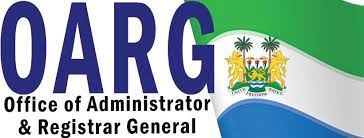
The answer to how to record the journal entry for petty cash is not straightforward. As stated above, the petty cash account may include different types of transactions. At the end of each accounting period, companies must close the balance on the petty cash account. They report this balance under the current asset section on the balance sheet. In most cases, companies include petty cash account balances under cash in hand. Petty cash is system companies create to hold insignificant amounts of funds.
Can Creatine Give You Acne? Let’s Settle the Debate

Setting a cash allowance depends on assignment time, location, or the per diem federal rate. Typically, cash allowances are considered taxable income to the employee, like wages and salaries. If petty cash is not tracked carefully, it can lead to unapproved spending or discrepancies. In short, all petty cash is cash on hand, but not all cash on hand is petty cash.

How Do You Record the Journal Entry for Petty Cash?

Petty cash is usually a relatively small amount, and is grouped with the general cash account on the balance sheet in current assets. Petty cash is a current asset listed as a debit on the balance bookkeeping sheet. An accountant will typically write a cheque to “Petty Cash” to fund the petty cash account and cash this cheque at the company’s bank.

Need help managing your business finances?
Proper management of petty cash ensures the careful monitoring and control of expenditures, regular replenishment of funds, and accurate reporting on financial statements. Petty cash is a small sum of money kept on hand by business to meet unexpected small-ticket expenses that may emerge during normal business operations. Despite being a small amount of money, petty cash still needs to be recorded for tax purposes.
- Next, write a check for the exact amount of the total expenses and replenish the account.
- For this, summarise all receipts and expenses that have been recorded.
- With a solid policy, proper oversight, and the right technology, you can manage petty cash with confidence and control.
- It is easy to set up and will save you from writing a lot of small checks or using your personal funds that you have to be reimbursed for later.
- For other companies, it’s usually simpler to automate accounting and bookkeeping without a petty cash fund.
- Petty cash refers to a system of holding insignificant sums of funds to pay for minor expenses.
Essential Guide to Understanding Ecommerce Balance Sheets
However, companies may also limit how much a customer can pay into this account. However, it may differ from “cash in hand” that companies keep for other purposes. Nonetheless, the accounting for both items is similar since they involve spending or receiving money. Petty cash is often considered unsecured, making it more vulnerable to employee theft or personal misuse. Thus, without strict supervision, tracking small transactions can be tricky and lead to unauthorised use.
Control
- One effective method is segregating duties, which involves assigning different tasks, such as disbursing cash and reconciling balances, to separate individuals.
- It ensures that minor expenses do not disrupt regular operations or financial workflows.
- To ensure transparency and accountability, businesses typically require receipts for all expenditures from the petty cash fund.
- Petty cash funds are a holdover from a time when cash was preferable to card transactions.
- When accounting for petty cash, companies must consider various factors.
- This way, businesses can quickly handle these little costs without the need for writing checks or using credit cards.
You should deposit the surplus petty cash into the company bank account. Follow these simple petty cash procedures and save yourself a headache at tax time. It’s what is the usual amount of money kept in a petty cash account? a great way to keep track of those small insignificant expenses that sometimes get overlooked at tax time. Remember…at all times…the amount on your petty cash form and cash in your petty cash box should always equal the original amount you started with. You will need to reconcile your petty cash account before you replace the money in it.
It saves time by allowing employees to make minor purchases without delays. However, to avoid problems like misuse or mistakes, businesses need clear gym bookkeeping rules and regular checks. When managed properly, petty cash helps businesses run smoothly without losing control of their finances.
